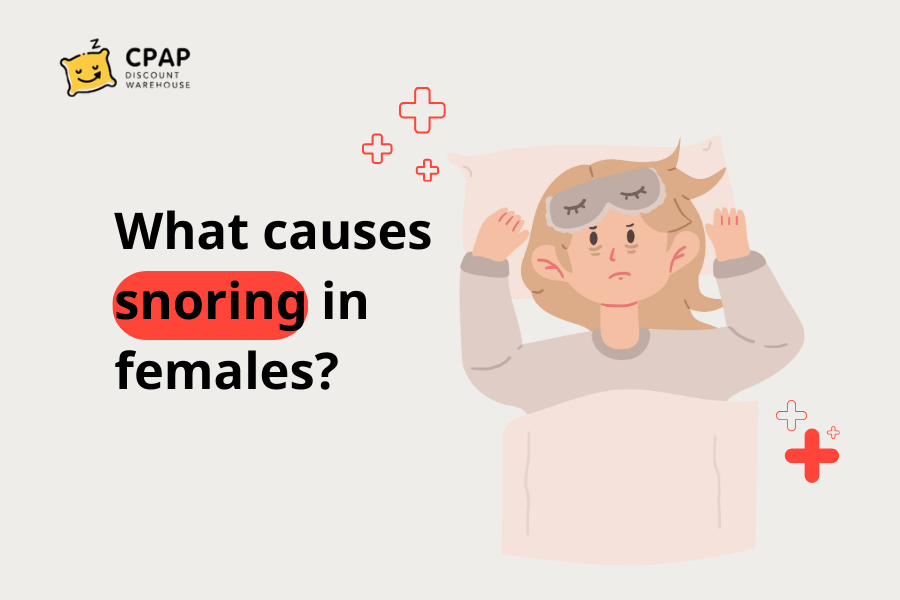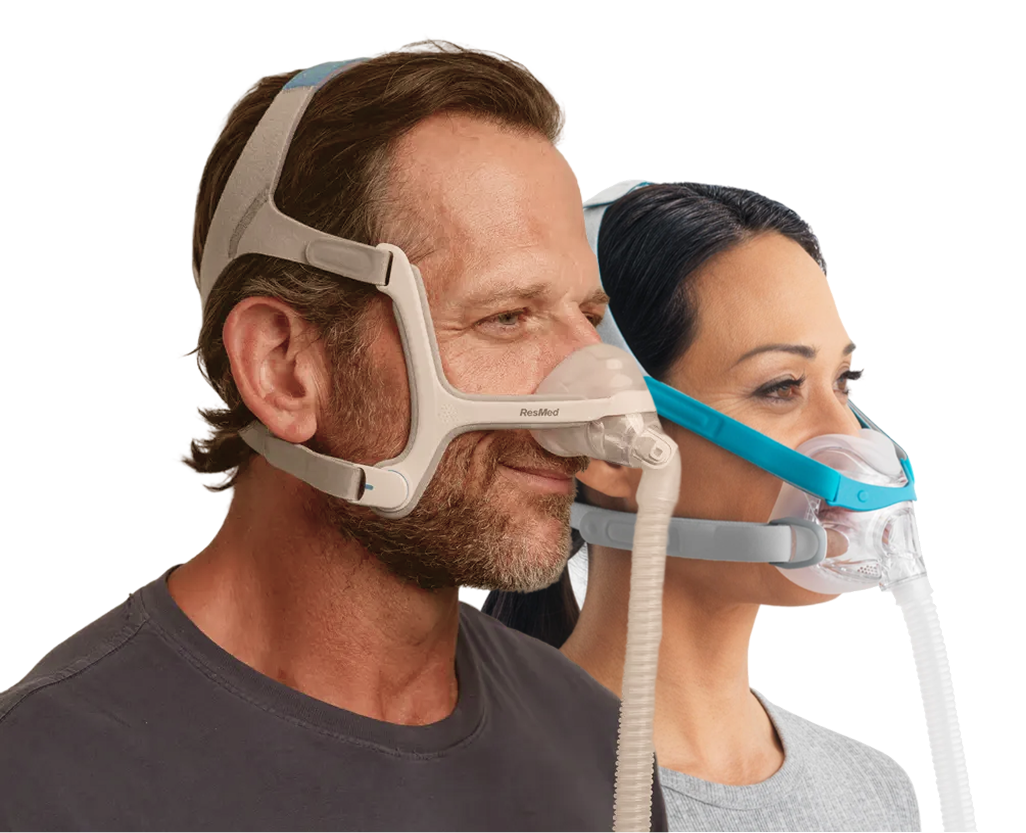Loud nighttime breathing, often characterized by disruptive and worrisome sounds, is a common issue experienced by many individuals worldwide. While often seen as a source of humor or frustration, snoring is a complex physiological occurrence that can indicate underlying health concerns and significantly impact overall quality of life. This discussion focuses on what causes snoring in females, shedding light on the factors that contribute to this condition and its potential effects.
Why do women snore?
What causes snoring in females? Many snorers may not realize the discomfort their snoring causes to others, especially sleeping partners or roommates. For women, snoring is not just an annoyance but can also pose significant health risks. While occasional snoring might be linked to common factors such as colds or allergies, persistent snoring in females could indicate an underlying health condition that needs attention.
Chronic snoring is associated with complications such as excessive daytime fatigue, difficulty concentrating, and an increased risk of accidents.
Snoring can result from various factors, some of which are specific to women and individuals assigned female at birth. While occasional snoring is common among adults, around 24% of women and 40% of men experience regular snoring.
>>> Learn more about: What causes snoring? 6 factors can contribute to snoring
What causes snoring in females?
Snoring in women can stem from various factors, including hormonal changes, lifestyle habits, and underlying health conditions. While often harmless, chronic snoring can impact sleep quality and overall well-being. What causes snoring in females? Key factors include hormonal shifts, weight gain, sleeping positions, genetic predispositions, and sleep apnea, all of which are discussed in the sections below.
Hormonal Changes
Hormonal changes, particularly during menopause and pregnancy, can lead to snoring in women. Reduced estrogen and progesterone levels during menopause may relax throat muscles, narrowing the airway and causing snoring. Similarly, weight gain during pregnancy can restrict the airway, contributing to snoring. Hormonal imbalances play a key role in this issue.
Obesity
Overweight individuals often have extra fatty tissues in the throat, which can narrow the airway and lead to snoring.
Sleeping Position and Lifestyle Habits
Sleeping on your back can cause the tongue to fall backwards, blocking the airway and leading to snoring. Also, Alcohol and certain medications can lead to excessive muscle relaxation, including the muscles in the throat and tongue, increasing the likelihood of snoring.
Physical attributes
Factors such as a narrow throat, a cleft palate, enlarged adenoids, and other physical characteristics can contribute to snoring. These factors can be genetic or develop over time due to age or other health issues. Additionally, chronic nasal congestion or a deviated nasal septum can interfere with air flow, causing or exacerbating snoring.
Sleep Apnea
Loud night breathing may be a considerable symptom of obstructive sleep apnea (OSA), an extreme condition wherein respiratory repeatedly stops and starts off evolved throughout sleep. This highlights the importance of the body's need for rest.

How to stop snoring women?
Snoring in women can often be addressed through simple, natural changes to daily habits and sleep routines. These adjustments not only help reduce or eliminate snoring but also improve overall sleep quality and health. Below are some effective strategies:
Lifestyle Changes to Reduce Snoring
-
Maintain a Healthy Weight: Excess weight, particularly around the neck, can narrow the airway and increase snoring. Following a balanced diet and incorporating regular exercise can help reduce fat in this area, improving airflow during sleep.
-
Avoid Alcohol Before Bed: Alcohol relaxes throat muscles, increasing the risk of airway obstruction. Reducing alcohol consumption, especially in the evening, can help minimize snoring.
-
Sleep on Your Side: Sleeping on your back allows the tongue and throat tissues to collapse, partially blocking the airway. Side sleeping keeps the airway open and reduces snoring. Use a body pillow or similar support to encourage this position.
Medical Solutions for Persistent Snoring
If lifestyle adjustments do not resolve snoring, medical treatments may be necessary, particularly for severe cases or those linked to sleep apnea. Common medical solutions include:
-
CPAP Therapy: For women with sleep apnea, Continuous Positive Airway Pressure (CPAP) therapy is a highly effective treatment. A CPAP machine delivers a steady flow of air through a mask, keeping the airway open and reducing both snoring and breathing pauses.
-
Nasal Strips or Dilators: These non-invasive devices improve airflow by widening nasal passages, making them helpful for snoring caused by nasal congestion or blockages.
-
Surgery for Severe Cases: When other treatments fail, surgical procedures may be considered to address structural abnormalities, remove excess throat tissue, or tighten airway muscles. Surgery is usually reserved for cases where snoring poses serious health risks, such as in sleep apnea.
Take Action for Better Sleep
By combining natural lifestyle changes with appropriate medical treatments, women can effectively reduce snoring and enhance their overall sleep quality. For persistent or severe cases, consult a healthcare professional to explore suitable treatment options.

Identifying and Treating Sleep Apnea
If you or a cherished one is experiencing snoring symptoms suggestive of sleep apnea, it is vital to searching for scientific help. A snooze expert can evaluate your signs and symptoms and might endorse a sleep examination for a definitive analysis.
Treatment options for sleep apnea include continuous positive airway pressure (CPAP) therapy, oral appliances, lifestyle modifications, and in severe cases, surgery. Understanding the effectiveness of these treatments, particularly the role of CPAP in promoting good sleep, can help individuals make informed decisions about managing their condition.

Conclusion
In conclusion, snoring and sleep apnea are interconnected sleep disorders that can have serious health implications if left untreated. Understanding what causes snoring in females, such as hormonal changes, weight gain, and sleep apnea, is crucial for addressing these issues effectively. Increased awareness of these conditions and their consequences is the first step towards better health and restful sleep. For those struggling with these challenges, solutions are within reach. At CPAP Discount, we are dedicated to offering affordable, high-quality CPAP equipment to help manage sleep apnea symptoms. Explore our range of CPAP products today and take the first step towards better sleep and improved health.





